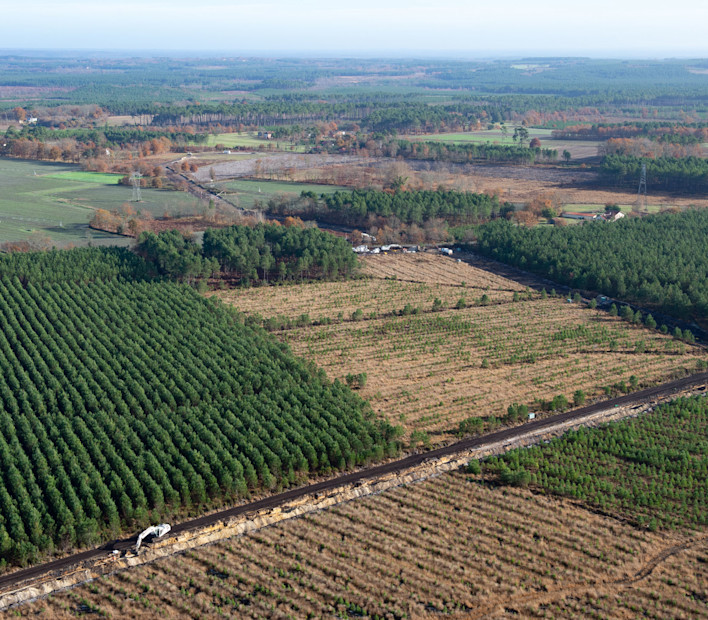Gas emergency 0 800 028 800

Gas transport
Rion-des-Landes (RDL)
2016 - 2019
The growth of urbanisation and increasing industrial consumption have led Teréga to improve and secure supplies of natural gas in the Castets / Rion-des-Landes sector in the Landes department.

Project's objectives
Development of the regional grid is a major consideration for Teréga. It is essential in helping economic development in the regions and guaranteeing the continuity of natural gas supply. The RDL is therefore aimed at:
RDL: a regional project to exploit the regional grid
Quote from DMO: “The Rion-des-Landes project is a practical response to the needs of the region and its people, allowing improvement of the gas supply in the region and preparing for the injection of green gas.” (Dominique Mockly – Chairman and CEO of Teréga)
Development of the regional grid is a major consideration for Teréga. It is essential in helping economic development in the regions and guaranteeing the continuity of natural gas supply. The RDL is therefore aimed at:
ensuring coverage of the region to allow the future transport of renewable (so-called “green”) gases.
encouraging coverage by a new public distribution grid,
participating in the expansion of digital services.
With its RDL project, Teréga is making a contribution to the creation of regional development opportunities with the connection of a new public distribution grid and the expansion of digital services.
The opportunity to create a new public distribution grid in the commune of Laluque came about through our partnership with a public distribution manager, Gascogne Energies Services (GES). Acting as an interface point between the large scale transport grid (Teréga) and the public distribution grid (GES), it comprises two interfaces:
one interface to supply the urban area (public distribution),
one interface to supply the industrial area (industrial customers).
As an accelerator of energy in the regions, Teréga is keen to study future opportunities for development in the regions it covers. As part of the RDL project, we therefore looked at the possibility of using the ducts installed for our telecommunication network to help the roll-out of optical fibre.
Environmental challenges for RDL
As with every gas transport infrastructure project, Teréga applied the Avoid-Reduce-Compensate (ARC) approach. The RDL project was therefore conducted in a such a way as to:
- avoid residential areas and wet areas (peat bogs etc.),
- reduce the project’s footprint in forestry areas, particularly by favouring a route running alongside existing infrastructure (roads, tracks etc.)
In addition to the two points above, a 2-hectare compensation area comprising Atlantic wet heath was created to reinstate the False Ringlet butterfly (a protected species) found along the RDL route.
Key figures
Schedule





